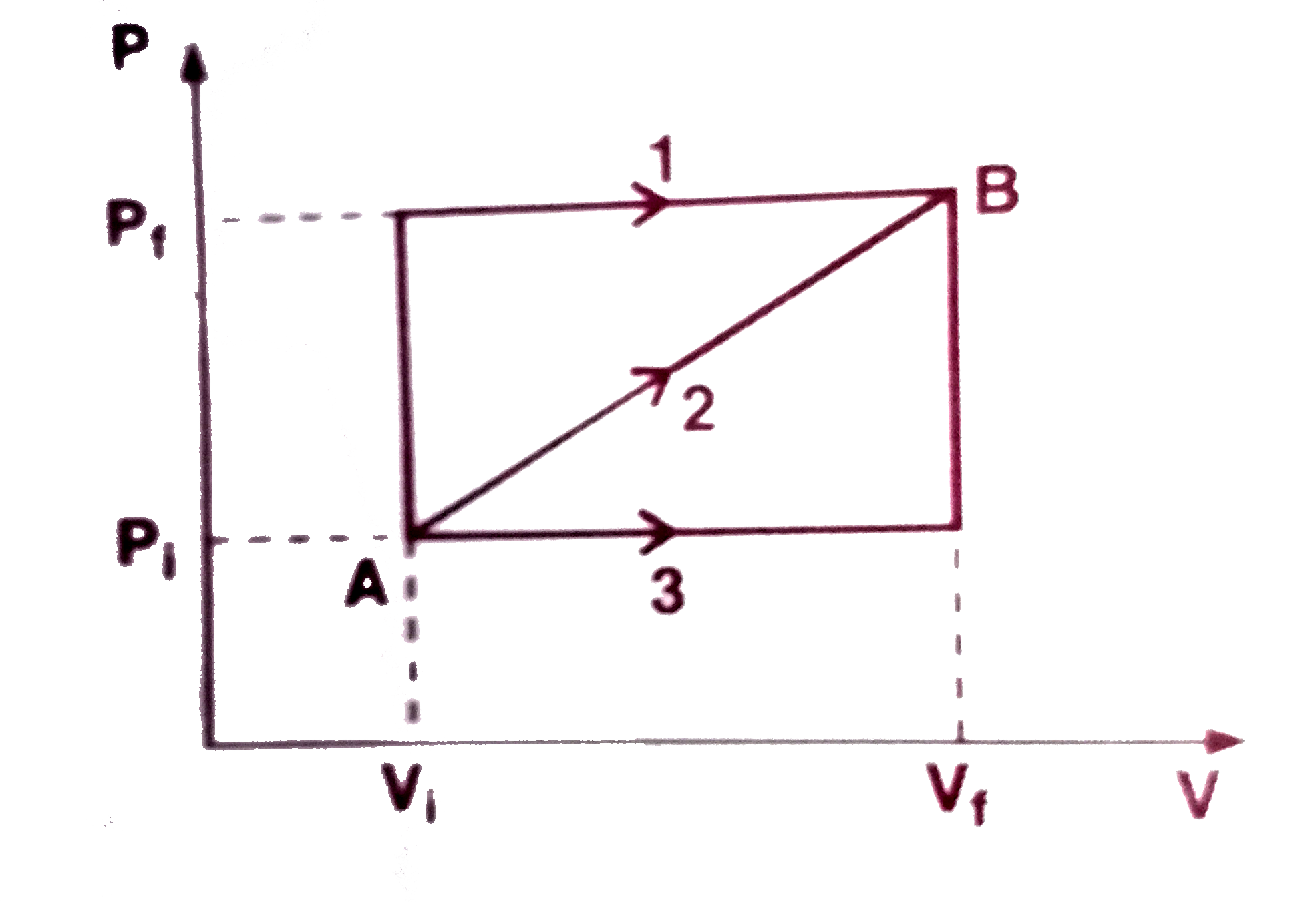When a system goes from one state to another, state/ whether the work done by the system is different for different processes ?Solution in Odia
Step by step video & image solution for When a system goes from one state to another, state/ whether the work done by the system is different for different processes ? by Physics experts to help you in doubts & scoring excellent marks in Class 12 exams.
Topper's Solved these Questions
Similar Questions
A glass window pane 1 m by 1 m is 25 mm thick. If the show outside maintains the outer surface at 0∘C and the heat of the room maintains the inner surface at 6∘C ,Thermal conductivity of glass in S.I unit is 0.2, how much heat will be conducted through the glass in 1 day ?
04:40View SolutionFind out the magnitude of the orthogonal components of a displacement vector in space .
01:45View SolutionWhen the state of a system changes from A to B adiabatically the work done on the system is 322 joule. If the state of the same system is changed from A to B by another process, and heat required is 50 calories of heat is required then find work done on the system in this process? (J=4.2J/cal)
View SolutionWhen the state of a gas adiabatically changed from an equilibrium state A to another equilibrium state B an amount of work done on the stystem is 35 J. If the gas is taken from state A to B via process in which the net heat absorbed by the system is 12 cal, then the net work done by the system is (1 cal = 4.19 J)
View SolutionA system is taken from state A to B through three different paths 1,2 and 3. The work done is maximum is :
 01:23View Solution
01:23View SolutionA monoatomic gas follow a process TV = constant. Calculate the ratio of work done to change in internal energy when the gas goes form one state to another.
04:18View SolutionAssertion : In a process, if work = 0 then DeltaU = q Reason : q is difference between initial state and final state of a system.
01:07View Solutionकिसी तंत्र की अवस्था तथा अवस्था फलन से क्या तात्पर्य है ? एक तन्त्र में सम्पन्न हो सकने विभिन्न प्रकार के प्रक्रमों का वर्णन कीजिए ।
View SolutionState whether each of the following processes will increase or decrease total energy content of the system:
(a) Heat transferred to the surroundings
(b) Work done by the system
(c) Work done on the system02:53View Solutionभारत की संघीय व्यवस्था में बेल्जियम से मिलती-जुलती एक विशेषता और उससे अलग एक विशेषता को बताएँ।
02:51View Solutionजब कोई निकाय एक अवस्था से दूसरी अवस्था में जाता है तो किये गये कार्य का मान :
01:58View SolutionWhen the state of a gas adiabatically changed from an equilibrium state A to another equilibrium state B an amount of work done on the stystem is 35 J. If the gas is taken from state A to B via process in which the net heat absorbed by the system is 12 cal, then the net work done by the system is (1 cal = 4.19 J)
01:34View SolutionIn changing the state of a gas adiabatically from an equilibrium state A to another equilibrium state B, an amount of work equal to 22.3 J is done on the system. If the gas is taken from state A to B, via a process in which the net heat absorbed by the system is 9.35 cal, how much is the net work done by the system in the latter case ?
01:57View SolutionState whether each of the following will increase or decrease the total energy content of the system. Work done by the system.
06:06View SolutionState whether each of the following will increase or decrease the total energy content of the system. Work done on the system.
01:53View Solution

